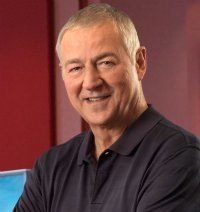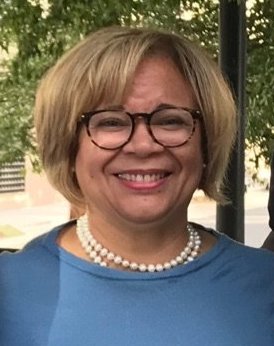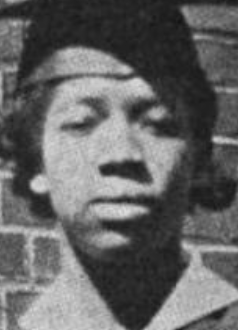Related Research Articles

Charlotte is the most populous city in the U.S. state of North Carolina and the county seat of Mecklenburg County. The population was 874,579 at the 2020 census, making Charlotte the 15th-most populous city in the United States, the seventh-most populous city in the South, and the second-most populous city in the Southeast behind Jacksonville, Florida. Charlotte is the cultural, economic, and transportation center of the Charlotte metropolitan area, whose estimated 2023 population of 2,805,115 ranked 22nd in the United States. The Charlotte metropolitan area is part of an 18-county market region and combined statistical area with an estimated population of 3,387,115 as of 2023.

Uptown Charlotte, also called Center City, is the central business district of Charlotte, North Carolina, United States. The area is split into four wards by the intersection of Trade and Tryon Streets, and bordered by Interstate 277 and Interstate 77. The area is managed and overseen by the Charlotte Central City Partners, which is one of the three Municipal Service Districts in Charlotte. Uptown Charlotte is the largest business district in Charlotte and the Carolinas.

Johnson C. Smith University (JCSU) is a private historically black university in Charlotte, North Carolina. It is affiliated with the Presbyterian Church (USA) and accredited by the Southern Association of Colleges and Schools (SACS). The university awards Bachelor of Science, Bachelor of Arts, Bachelor of Social Work, and Master of Social Work degrees.

Garinger High School is a high school located in Charlotte, North Carolina, United States.

James Howard Goodnight is an American billionaire businessman and software developer. He has been the CEO of SAS since 1976, which he co-founded that year with other faculty members of North Carolina State University. As of December 2024, his net worth was estimated at US$16.7 billion, according to Bloomberg Billionaires Index and was regarded as the richest person in North Carolina as of April 2023.

Levine Center for the Arts on South Tryon Street in Charlotte, North Carolina, includes Bechtler Museum of Modern Art, the Harvey B. Gantt Center for African-American Arts + Culture, the Knight Theater, and the Mint Museum Uptown. It was named for Leon Levine, whose foundation provided financing.

Carolina Actors Studio Theatre (CAST) was an independent non-profit theatre company located at 2424 North Davidson Street in Charlotte, North Carolina. It was founded in 1992 by Charlotte acting instructor Ed Gilweit as an actor's teaching school. In 2000 Gilweit's company partnered with a video and stage production company run by Michael Simmons called Victory Pictures, Inc., and then with the fledgling theatre group Another Roadside Performance Company run by Robert Lee Simmons, Michael Simmons' son. Through this series of mergers, Gilweit and the Simmons' became the founders of the Carolina Actors Studio Theatre. After Gilweit's death in 2002, Michael Simmons became the Managing Artistic Director.
The Metrolina Theatre Association (MTA) is a non-profit organization based in Charlotte, North Carolina, US, established in 1985 to strengthen arts awareness and to be an advocate of the performing arts in the Charlotte-Mecklenburg region.
James Eugene Rogers Jr. was an American businessman and author. He was president and CEO of Duke Energy, the largest electrical utility in the U.S., from April, 2006 until July 1, 2013. He stayed on as Chairman of the Board until retiring the following December. His book, Lighting the World, which explores the issues involved in bringing electricity to over 1.2 billion people on earth who lack it, was published August 25, 2015, by St. Martin's Press. The book asserts that access to electricity should be recognized as a basic human right.

The Lynx Blue Line is a light rail line in Charlotte, North Carolina, United States. Opened in 2007, it was the first rail line of the Charlotte Area Transit System, and the first major rapid rail service of any kind in the state. The 26-station, 19.3-mile (31.1 km) line extends from its northern terminus at the University of North Carolina at Charlotte in University City through NoDa, Uptown, and South End, then runs along South Boulevard to its southern terminus just north of Interstate 485 at the Pineville city limits. The line carries an average of over 27,700 passenger trips every day and offers connections to the CATS' CityLynx Gold Line which opened in 2015.
Arnold Ventures LLC is a limited liability company focused on evidence-based philanthropy in a wide range of areas including criminal justice, education, health care, and public finance. The organization was founded by billionaires John D. Arnold and Laura Arnold in 2008.

Jennifer Roberts is an American politician, businesswoman and former diplomat who served as the 58th mayor of Charlotte, North Carolina. She was elected on November 3, 2015 having previously served four terms on the Mecklenburg County Board of Commissioners. In 2012, she was the Democratic nominee for the United States House of Representatives in North Carolina's 9th congressional district.
Spirit Square, also called Spirit Square Center for the Arts, is located in Charlotte, North Carolina. Its McGlohon Theater in the former First Baptist Church on North Tryon Street, named for Loonis McGlohon, is now part of North Carolina Blumenthal Performing Arts Center.

Stephen B. Heintz is an American nonprofit executive and public policy expert. Since 2001, he has served as president of the Rockefeller Brothers Fund, a family foundation with an endowment of approximately $1.2 billion that advances social change for a more just, sustainable, and peaceful world. Heintz coined the term “acupuncture philanthropy” to describe his philanthropic approach of leveraging modest financial assets to trigger larger systemic change on critical issues.

Viola Alexander Lyles is an American politician serving as the 59th mayor of Charlotte, North Carolina, since 2017. A member of the Democratic Party, Lyles was a member of the Charlotte City Council before taking office as mayor.
Jean Emily Fairfax was an American educator, civil rights worker, community organizer, and philanthropist whose efforts have focused on achieving equity in education, especially for poor African Americans. She served as Director of Community Services of the NAACP from 1965 to 1984.

DeAndrea Salvador is a Democratic member of the North Carolina Senate. She has represented the 39th Senate district since 2021. She is the founder and Chief Executive Officer of Renewable Energy Transition Initiative (RETI), a nonprofit that educates communities and leaders about energy conservation and affordability. She was a 2018 TED Fellow. Elected at age 30, Salvador is the youngest Black woman ever to serve in the North Carolina General Assembly.
The Foundation for the Carolinas is a donor-advised charity with a non-exclusive focus on North Carolina and South Carolina.

Elizabeth "Libby" Schmoke Randolph was an American educator. She was a leader on school desegregation in the Charlotte-Mecklenburg Schools in the 1970s, and president of the Association for Supervision and Curriculum Development, a national professional organization. She was also a regional director of Alpha Kappa Alpha. The Charlotte-Mecklenburg Schools administrative headquarters is named the Elizabeth Schmoke Randolph Building, in her memory.
Sally Dalton Robinson is an American philanthropist and civic leader. She was a key figure in the founding of the Levine Museum of the New South in Charlotte, North Carolina and served on the board of the Charlotte Symphony Orchestra, the Charlotte Mecklenburg Library, the Charlotte Nature Museum, the Charlotte Arts and Science Council, and the McColl Center for Art + Innovation. Robinson is an active member of the Junior League and the Episcopal Diocese of North Carolina. She was inducted into the North Carolina Women's Hall of Fame in 2009.
References
- 1 2 3 4 Rachel Jones (February 1, 2017). "The Visionary: Michael Marsicano". Charlotte Magazine. Retrieved July 5, 2018.
- 1 2 3 Greg Lacour (June 24, 2013). "Civic Duty". Charlotte Magazine. Retrieved July 5, 2018.
- ↑ Page Leggett (May 7, 2014). "Baring our souls: The return of Angels in America". Creative Loafing Charlotte. Retrieved July 5, 2018.
- ↑ Perry Tannenbaum (June 21, 2012). "Angels in America". Creative Loafing Charlotte. Retrieved July 5, 2018.
- ↑ "No gays, please, we're Carolinian". The Economist. April 24, 1997. Retrieved July 5, 2018.
- ↑ Foundation for the Carolinas. "The Generosity of Our Region". Foundation for the Carolinas. Retrieved July 5, 2018.
- ↑ Mark Price (March 26, 2017). "Foundation for the Carolinas tops $2.1 billion in assets at 'critical moment' for city". The Charlotte Observer. Retrieved July 5, 2018.
- ↑ Katherine Peralta (April 6, 2016). "Vision Award to honor Marsicano". The Charlotte Observer. Retrieved July 5, 2018.
- ↑ Kerry Hall (August 19, 2008). "Chamber to honor innovators". The Charlotte Observer. Retrieved July 5, 2018.
- ↑ Johnson C. Smith University (2011). "Arch of Triumph Gala" (PDF). Johnson C. Smith University. Retrieved July 5, 2018.
- ↑ Paul Clolery (August 2, 2018). "NonProfit Times Releases 2018 'Power & Influence' Top 50 List". Philanthropy News Digest - a service of Foundation Center. Retrieved September 27, 2018.
- ↑ Jennifer Gilewski (May 25, 2011). "Snapshot: Michael Marsicano". The Charlotte Observer. Retrieved July 5, 2018.